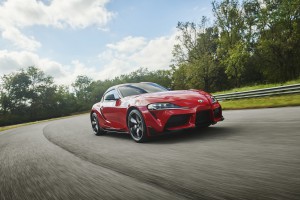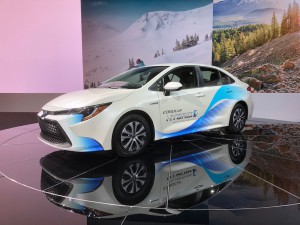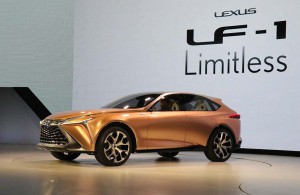
The new Toyota Supra made its street-version debut at the North American International Auto Show in Detroit.
Toyota will be flooding U.S. showrooms with 19 new models during the next three years, a senior official said last weekend, a list that includes the next-generation Supra, Corolla and Corolla Hybrid.
Expect to see more utility vehicles in the Japanese automaker’s line-up, but don’t expect to see Toyota abandon the passenger car market. If anything, it hopes to pick up some of the slack as its Detroit-based rivals trim back their own sedan and coupe lines.
“We’re still committed to being a full-line manufacturer, Toyota brand chief Jack Hollis told trade publication Automotive News following a “make meeting” with dealers at the annual National Automobile Dealers Association convention.
Toyota has been growing its line-up with the addition of all-new models like the Supra, as well as new variants of existing models, including the Corolla Hybrid. Among the products in the pipeline, look for an update of the three-row Highlander SUV, Hollis told dealers.
(Long-awaited Toyota Supra finally breaks cover in Detroit. Click Here for the story.)
Another anticipated entry is a production version of the LF-1 Limitless concept unveiled at the North American International Auto Show in Detroit in January 2018. It would serve as a crossover counterpart to the Lexus division’s current flagship, the LS sedan.

Toyota's commitment to passenger cars may have been cemented with the addition of a hybrid version of the Corolla.
Two other possible moves on the truck side would see Toyota try to broaden the appeal of its Tacoma and Tundra pickups. The full-size model continues to struggle, in part, due to a lack of the variants that big truck buyers demand. The Tacoma remains the best-selling midsize pickup in the U.S. market but is facing an array of new competitors that, over the next year, will include both the reborn Ford Ranger and the all-new Jeep Gladiator. Dodge also is giving serious thought to getting back into the segment, brand boss Reid Bigland told TheDetroitBureau.com this month.
Considering light trucks collectively account for more than two-thirds of new vehicles sales in the U.S., it makes sense that pickups and, in particular, utility vehicles will dominate the future line-up, as Toyota’s North American CEO Jim Lentz has indicated several times in recent months.
But, like Toyota brand general manager Hollis, the automaker’s top executives have made it clear the mainstream marque and upscale Lexus continue to see strong opportunities for passenger cars, as well.
“At 4 million units, the (U.S.) passenger car market is bigger than the market in most countries,” Bob Carter, the company’s second-in-command in North America, said during an appearance in Detroit earlier this month. “Cars are very important.”
(Click Here for more about the new Toyota Corolla Hybrid.)
According to various sources, Toyota is readying a performance-oriented version of its entry-lux Lexus sedan, to be called the IS F. It is also working up a complete makeover of its base sports car, the Toyota 86 which should reach showrooms late in 2020.
The debut of the new Corolla Hybrid underscores the Japanese brand’s long-running commitment to gas-electric technology, and still more are coming, according to various company officials. That said, the company is facing a challenge figuring out what to do with the next-generation Prius model, as TheDetroitBureau.com reported last month. It remains the best-selling conventional hybrid in the U.S. market, but sales are down substantially since peaking earlier in the decade and, with more competition – as well as lower fuel prices – cutting into demand, Toyota officials are looking at a variety of options.
“For the next Prius we have to think about how to … separate (it) from the rest of the Toyota line-up,” Deputy Chief Engineer Koichi Kaneko said, during an interview in Kohler, Wisconsin, last month where journalists got to test out the new all-wheel-drive version, the 2019 Prius Plus.
The current Prius line-up also includes the Prime, a plug-in hybrid electric-vehicle. The company is working up more PHEVs, as well as pure battery-electric vehicles. That said, Toyota officials remain skeptical about the appeal of BEVs – and their potential profitability. “The equations around electric aren’t making money,” Hollis said Sunday.
But, with competitors ranging from Audi to GM, and Nissan to Volkswagen, getting into the all-electric game, Toyota is pushing forward. Its new plant in Alabama, part of a joint venture with Mazda, is expected to assemble at least one new Toyota BEV when it goes into production in 2021.
(To see more about the LF-1 Limitless concept Lexus showed last year, Click Here.)
“It’s going to be a battle,” North American chief Lentz said this month in Detroit, echoing skeptics who expect to see lots of BEVs and relatively few buyers, at least initially.

